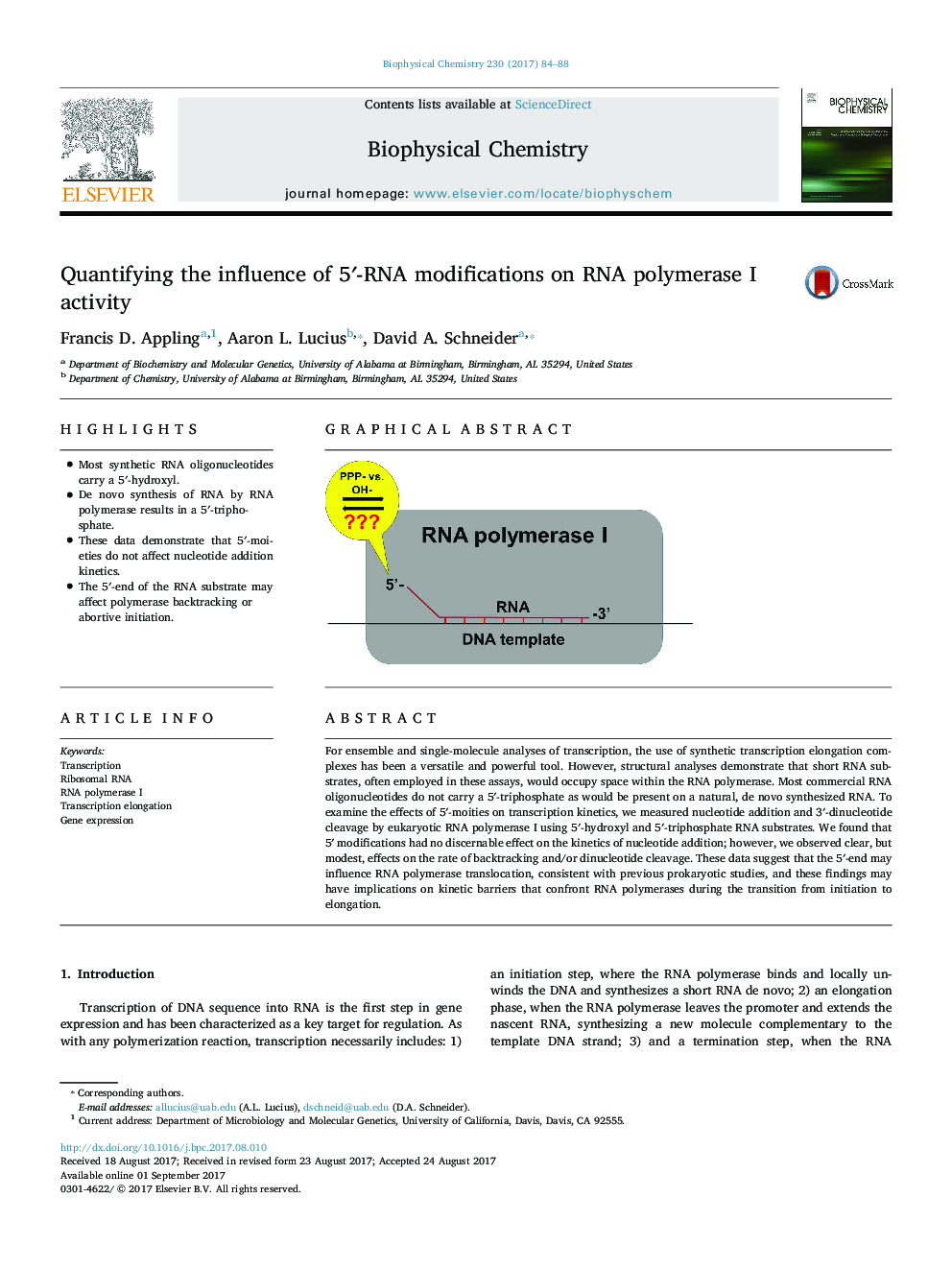| Article ID | Journal | Published Year | Pages | File Type |
|---|---|---|---|---|
| 5370578 | Biophysical Chemistry | 2017 | 5 Pages |
â¢Most synthetic RNA oligonucleotides carry a 5â²-hydroxyl.â¢De novo synthesis of RNA by RNA polymerase results in a 5â²-triphosphate.â¢These data demonstrate that 5â²-moieties do not affect nucleotide addition kinetics.â¢The 5â²-end of the RNA substrate may affect polymerase backtracking or abortive initiation.
For ensemble and single-molecule analyses of transcription, the use of synthetic transcription elongation complexes has been a versatile and powerful tool. However, structural analyses demonstrate that short RNA substrates, often employed in these assays, would occupy space within the RNA polymerase. Most commercial RNA oligonucleotides do not carry a 5â²-triphosphate as would be present on a natural, de novo synthesized RNA. To examine the effects of 5â²-moities on transcription kinetics, we measured nucleotide addition and 3â²-dinucleotide cleavage by eukaryotic RNA polymerase I using 5â²-hydroxyl and 5â²-triphosphate RNA substrates. We found that 5â² modifications had no discernable effect on the kinetics of nucleotide addition; however, we observed clear, but modest, effects on the rate of backtracking and/or dinucleotide cleavage. These data suggest that the 5â²-end may influence RNA polymerase translocation, consistent with previous prokaryotic studies, and these findings may have implications on kinetic barriers that confront RNA polymerases during the transition from initiation to elongation.
Graphical abstractDownload high-res image (101KB)Download full-size image
